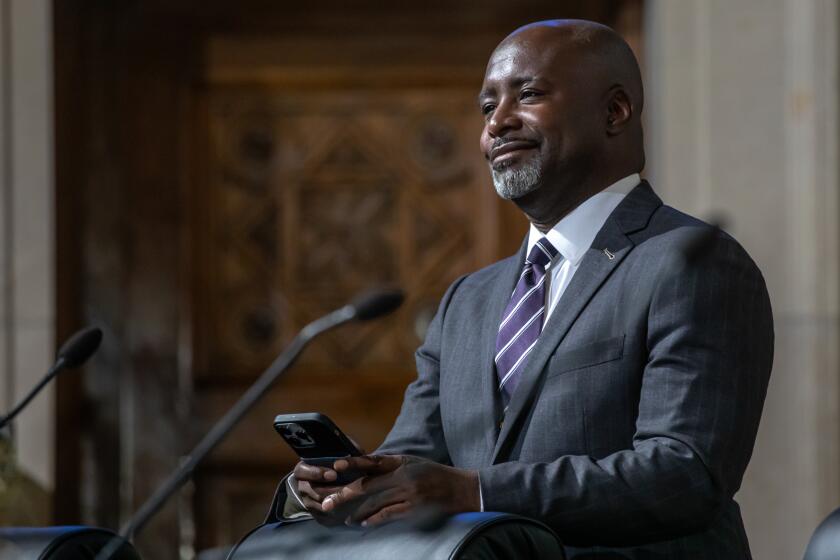City of South Gate settles officers’ suits for $18 million
- Share via
The city of South Gate has paid out $18 million to settle lawsuits filed by a group of officers who said they faced racially motivated discrimination, harassment and retaliation in the aftermath of the ouster of a Latino police official in 2002, the officers’ attorney said Tuesday.
Sixteen police officers filed suits against South Gate, a working-class, predominantly Latino city with an annual budget of about $100 million, alleging that they were subjected to racial slurs and false internal affairs investigations, unfairly disciplined, and passed up for promotions. Many said they were discriminated against because of their association with Rick Lopez, a former acting police chief.
The settlements, the last of which was finalized Tuesday, include the claims of four officers who won a $10.4-million jury verdict in 2007 and former Assistant Chief Mark Van Holt, who was awarded $4.2 million by a jury in a retaliation suit against the city. Those verdicts were challenged on appeal by the city and settled for undisclosed amounts that are part of the $18 million, said Bradley Gage, the officers’ attorney.
City spokeswoman Nellie Cobos said Tuesday that she could not confirm the total amount paid to the officers, saying only that the latest settlement was for $7 million.
“We’re pleased to bring closure, and to start a new beginning,” she said.
According to the plaintiffs’ lawsuits, the alleged harassment stemmed from a political scandal that roiled the city beginning in 2001, when the City Council appointed Lopez, then the police chief of Maywood, to head South Gate’s police force. The appointment led to a recall of council members and the eventual ouster of Lopez and two deputies.
Lopez’s departure came amid criticism of his annual salary and compensation, and concerns over his links with then-city Treasurer Albert Robles, who was later sentenced to 10 years in federal prison for stealing public funds.
The jury in the 2007 trial rejected the argument that the officers were discriminated against because of their race, but agreed that they were discriminated against because of Lopez’s race and national origin.
--
More to Read
Sign up for Essential California
The most important California stories and recommendations in your inbox every morning.
You may occasionally receive promotional content from the Los Angeles Times.











